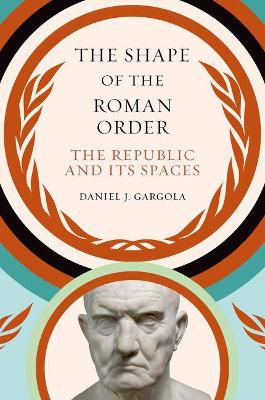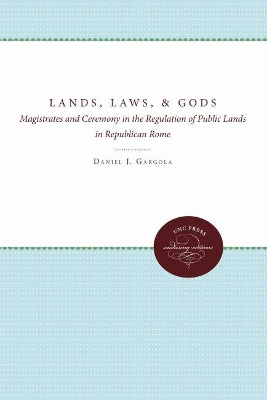Studies in the History of Greece and Rome
2 total works
In recent years, a long-established view of the Roman Empire during its great age of expansion has been called into question by scholars who contend that this model has made Rome appear too much like a modern state. This is especially true in terms of understanding how the Roman government ordered the city--and the world around it--geographically. In this innovative, systematic approach, Daniel J. Gargola demonstrates how important the concept of space was to the governance of Rome. He explains how Roman rulers, without the means for making detailed maps, conceptualized the territories under Rome's power as a set of concentric zones surrounding the city. In exploring these geographic zones and analyzing how their magistrates performed their duties, Gargola examines the idiosyncratic way the elite made sense of the world around them and how it fundamentally informed the way they ruled over their dominion.
From what geometrical patterns Roman elites preferred to how they constructed their hierarchies in space, Gargola considers a wide body of disparate materials to demonstrate how spatial orientation dictated action, shedding new light on the complex peculiarities of Roman political organization.
From what geometrical patterns Roman elites preferred to how they constructed their hierarchies in space, Gargola considers a wide body of disparate materials to demonstrate how spatial orientation dictated action, shedding new light on the complex peculiarities of Roman political organization.
In Lands, Laws, and Gods, Daniel Gargola examines the formulation and implementation of laws regulating the use of public lands, including the establishment of colonies, in Republican Rome (509-27 B.C.). During this period of territorial expansion, the Romans developed the basic legal forms by which they governed captured land, and they constructed the processes and ceremonies by which those forms were translated into practice. Using agrarian law as a case study and focusing especially on rituals that both validated and gave structure to the administrative process, Gargola demonstrates the fundamental connections between religion, law, and government. Essential acts in the administration of agrarian legislation, such as the transfer of land from one party to another and the granting of contracts for public works, depended upon ritual formulas and gestures, often within the context of religious ceremonies. By recovering these formulas and their larger significance, Gargola reconstructs an important dimension of Roman life.
A UNC Press Enduring Edition -- UNC Press Enduring Editions use the latest in digital technology to make available again books from our distinguished backlist that were previously out of print. These editions are published unaltered from the original, and are presented in affordable paperback formats, bringing readers both historical and cultural value.
A UNC Press Enduring Edition -- UNC Press Enduring Editions use the latest in digital technology to make available again books from our distinguished backlist that were previously out of print. These editions are published unaltered from the original, and are presented in affordable paperback formats, bringing readers both historical and cultural value.

